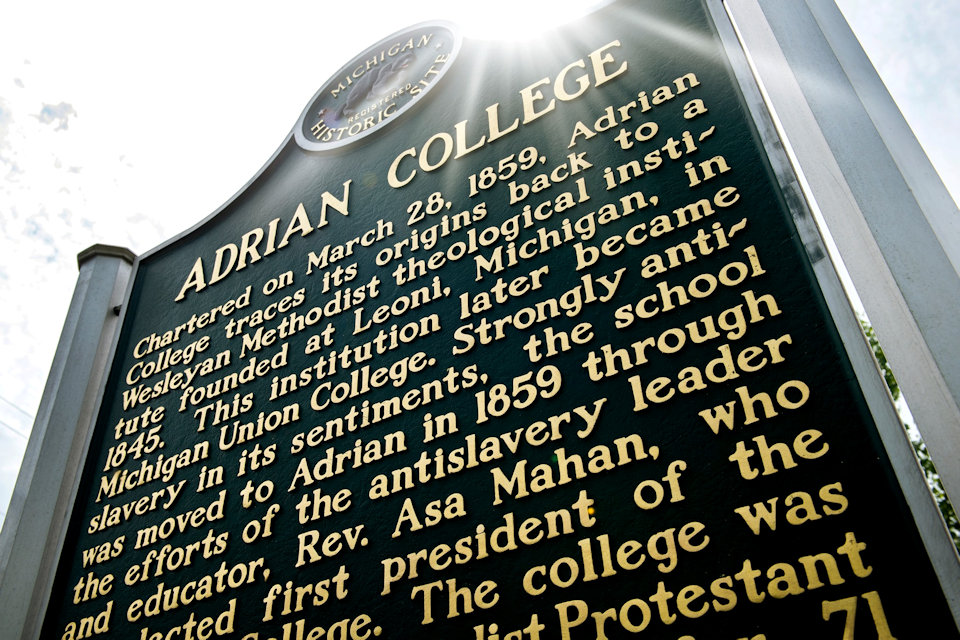Bishop Bard comments on the changes taking place at Adrian College. He and four Michigan Conference clergy sit on the school’s Board of Trustees.
August 31, 2020 | LANSING, MI — These are difficult times for all institutions of higher education, but small independent church-related colleges face a unique set of challenges. Both Adrian and Albion, the two United Methodist-related colleges in Michigan, were confronting the combined challenges of higher expenses, rising tuition, and fewer potential high school graduates in the state before the COVID-19 pandemic. Together, these issues are forcing difficult choices about how to position the colleges for the future. At Adrian, these considerations have come to the fore in a rather public debate over the future of the humanities at the college.
Adrian has had great success in the past decade, increasing enrollment from a low of about 800 to over 1800. The college has expanded its offerings both in extra-curricular activities and in academic programs. However, the current financial realities have required difficult decisions, including staff lay-offs, salary reductions, and the elimination of some positions in departments with low enrollment. In line with the faculty union contract, this meant alerting faculty in the departments of religion and philosophy, history, Japanese, and theatre that these departments would be eliminated based on the low number of majors in each department at the end of this academic year.
The reaction among faculty and alumni was immediate. An online group calling themselves “The Asa Mahan Squad” in honor of the founder of the college, has over 1,900 members. Their overarching theme is, “Save the Adrian College Humanities.” Dr. Jennifer McNabb, a 1994 graduate, and history major, says, “As an alumna of one of the targeted programs and longtime supporter of the college, I am deeply concerned future students will be denied the curricular depth enjoyed by past generations of Adrian alumni. Training in the liberal arts is essential to competent, compassionate citizenship and career success.”
On August 29, 2020, the college released a statement that affirms that “Adrian College has not eliminated any academic departments. The college administration always works with the Board of Trustees and the college faculty to consider effective and efficient options for continued organization, reorganization, and delivery of academic offerings for students.” The statement acknowledges that “… consideration of changing, eliminating, or reimagining underperforming departments and then reshaping them and revitalizing the disciplines into a more efficient and effective departmental organization” is part of that process. The statement adds this does not mean “abandoning the liberal arts.”
As a United Methodist-related college, the Board of Trustees at Adrian has representatives of the conference, including four clergy and the bishop. The college is proud of its connection with the denomination and continues to emphasize spiritual concerns as a part of the education of the whole person.
Commenting on the current debate at the college, Bishop David Bard said, “I am disappointed by these proposed cuts. I continue to think that a church-related liberal arts college has an obligation to provide education informed by religious traditions. I look forward to the college finding ways to provide that kind of education even in the midst of a challenging financial environment for small liberal arts colleges. I trust that there will be constructive dialogue in the coming months.”
The college says a committee of faculty and administration has been formed, which will work over the next year to propose “an alternative structure” for the departments involved. The official statement concludes, “Save the AC Humanities? Indeed. Let’s save the Adrian College Humanities by creating a relevant, vibrant, and vital structure capable of carrying us into a rewarding future.”
Last Updated on September 20, 2022

